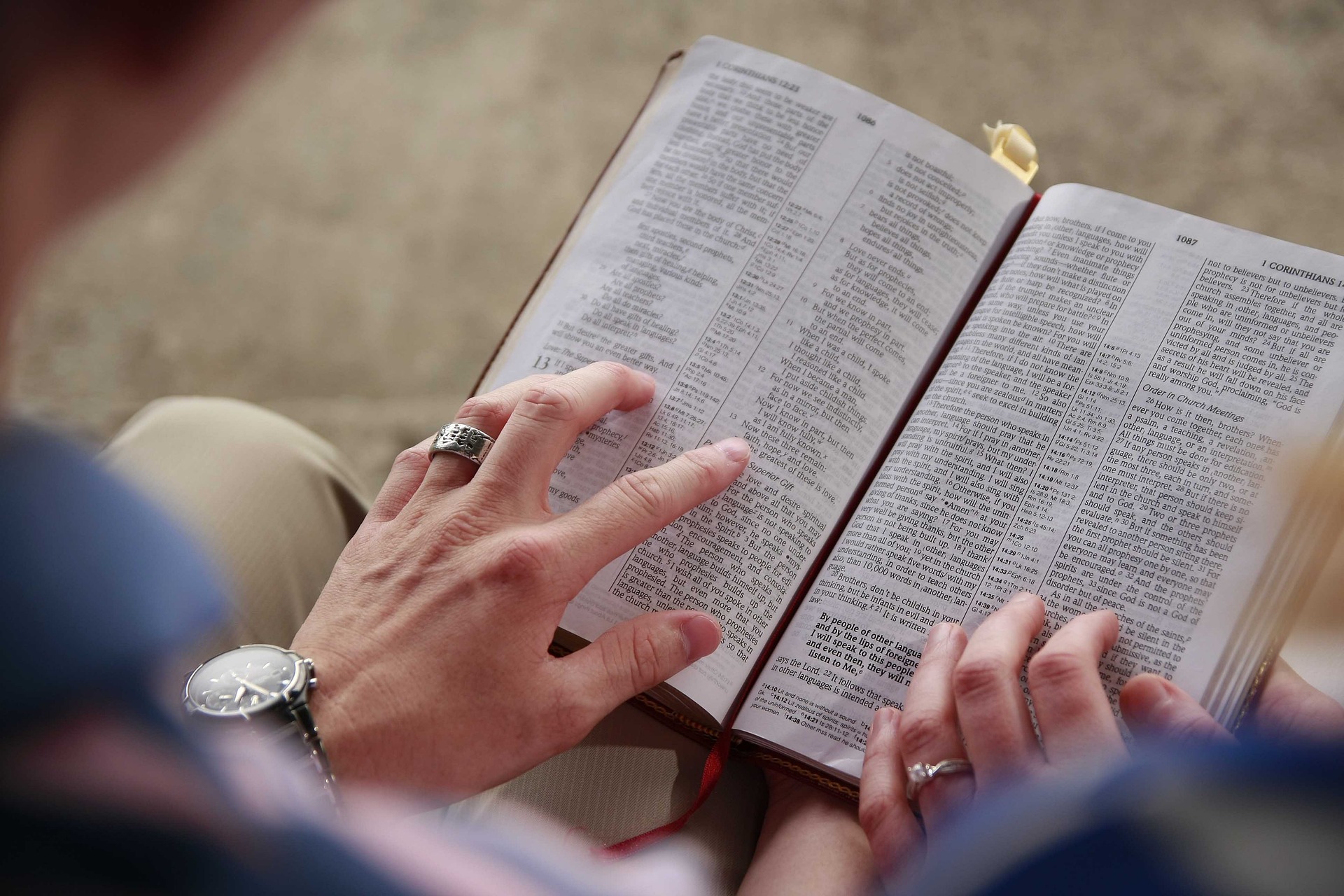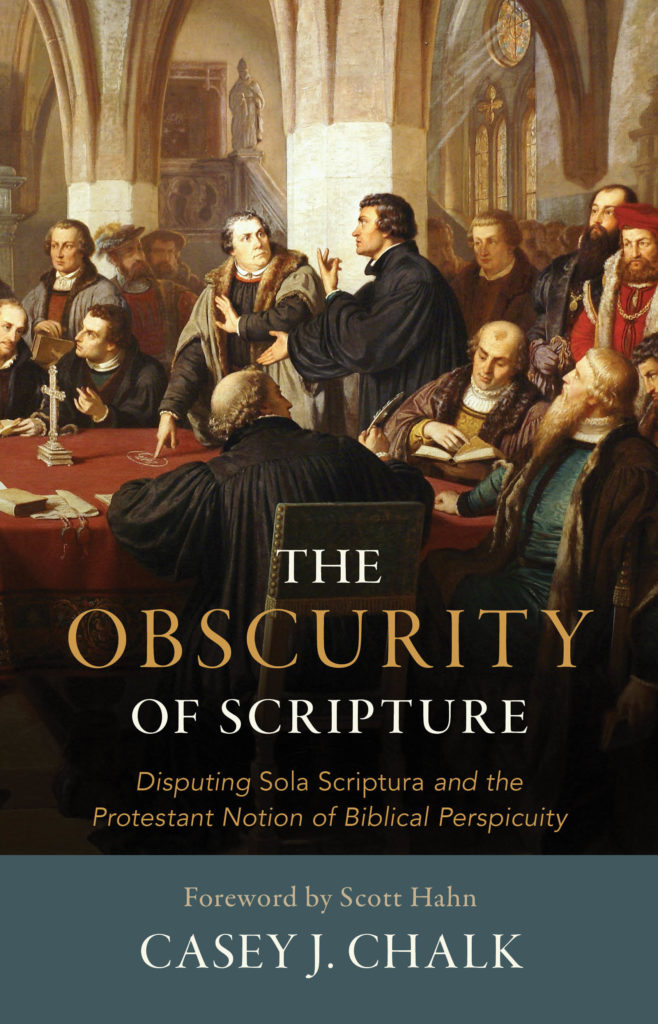
Many Christians, Protestant, Catholic, and even Orthodox, would label sola scriptura a foundational, if not the most foundational of Protestant doctrines. Luther himself famously declared at the Diet of Worms (1521):
“Unless I am convinced by the testimony of the Scriptures or by evident reason—for I can believe neither pope nor councils alone, as it is clear that they have erred repeatedly and contradicted themselves—I consider myself conquered by the Scriptures adduced by me and my conscience is captive to the Word of God.”
Such a statement would seem to suggest Luther viewed Scripture’s preeminent authority as the cornerstone of Christian theology. Calvin too affirms the preeminent, foundational authority of the Bible in Protestant thought and practice.
The reason for the foundational role of sola scriptura is simple. All Protestant doctrines (e.g., sola fide, sola gratia, solus Christus, soli Deo gloria, etc.) attempt to find their source exclusively in the Bible. The Protestant understanding of the Bible—including its authority and sufficiency—is then paramount, and serves as a kind of guardian, preserving and protecting the integrity of Holy Scripture. Catholic apologists, many of them former Protestants themselves, argue much the same. In the last generation alone, Catholics such as Marcus Grodi, Robert Sungenis, and Dave Armstrong have offered book-length treatments of sola scriptura precisely because they see it as the very heart of Protestantism. Yet is sola scriptura truly the most foundational of Protestant doctrines?
Many Protestants have acknowledged that the Reformation, at its core, is a debate over authority. However, Protestants (and Catholic apologists) have often understood authority primarily in terms of divine Revelation or what counts as infallible sources of Christian doctrine. For Protestants, the Bible alone is the only source of divine Revelation and the only source of infallible doctrine. For Catholics, the deposit of faith is transmitted through two distinct, complementary modes: Sacred Scripture and apostolic Tradition, as explained in the ecumenical document Dei Verbum, while the magisterial teaching authority of the Church (exercised in ecumenical councils, ex cathedra pontifical statements, etc.) acts as an infallible interpreter of that deposit. These distinctions, however salient, have obscured Protestant and Catholic discussion over how authority operates in both theological systems.
The Reformation, and, by extension, the Protestant paradigm, is predicated on the premise that individual Christians are better judges of scriptural meaning than any higher ecclesial authority. This premise explains Luther’s refusal to acknowledge historic Church councils that came to different conclusions from him regarding the interpretation of the Bible, as well as the actions of other Reformers who rebelled from Rome on what they termed biblical grounds. As the Calvinist confessional document, the Westminster Confession of Faith teaches: “All synods or councils since the apostles’ times, whether general or particular, may err, and many have erred; therefore they are not to be made the rule of faith or practice, but to be used as a help in both.”
The origin of religious authority in Protestantism is the individual Christian, not only in reference to how the Bible is to be interpreted, but even in defining its contents. Luther’s 1534 Bible was the first to separate the deuterocanonical books, or apocrypha, and identify them as an intertestamental section, including an appended note explicitly labeling them as not divinely inspired. Early English-language Protestant editions of the Bible, including Tyndale and Coverdale, made a similar distinction. These books—Tobit, Judith, the Wisdom of Solomon, Sirach, Baruch, 1 Maccabees, and 2 Maccabees—had been endorsed by several Church synods in the late fourth century (Rome, Hippo, and Carthage) and were reaffirmed by the ecumenical Council of Florence in 1441. However, early Reformers such as Luther and Calvin, concerned with the deuterocanonical books’ teaching of such doctrines as purgatory, indulgences, and the propitiatory character of alms deeds (“works righteousness”), judged them to not carry equal authority to the rest of the biblical canon. Luther called Tobit a “pious comedy,” and Judith fictional. Calvin charged that the Catholic hierarchy “provide themselves with new supports when they give full authority to the Apocryphal books. Out of the second of the Maccabees they will prove Purgatory and the worship of saints; out of Tobit satisfactions.”
To this day, Protestants remain suspicious of the Deuterocanon. An article in the Calvinist English Standard Version Study Bible declares that the teachings of the deuterocanonical books “are clearly at variance with what the New Testament teaches about regeneration, justification, and the present life as one’s only period of probation.” Such views toward the Deuterocanon are standard fare among Protestants who claim that it contains teachings in contradiction to the Bible’s “clear” teaching on salvation, and is thus suspect. Protestant scholars’ use of the word clearly as it relates to the New Testament and the Deuterocanon is, however, quite telling. What it demonstrates is the way in which the doctrine of perspicuity informs how Protestants approach every biblical subject, including even what counts as canonical Scripture.
In effect (though never stated as such), the Reformers replaced the belief that God guided the Church in selecting the canon to a belief that God guides the individual Christian in selecting it. Thus in the modern era we see popular Calvinist thinkers including R. C. Sproul describing the biblical canon as a “fallible collection of infallible books,” because its contents are based on the fallible determinations of individual Christians. Moreover, the idea that Christians can make such determinations is made on the grounds that Scripture is clear enough to inform their judgments.
In Protestantism, authority ultimately resides in the free conscience of the individual Christian, representing what Charles Taylor has called the “modern turn inward.” This freedom is predicated on the doctrine of perspicuity, which gives the Protestant the ability to define and interpret the Bible, “submitting” to it through his own interpretation, and thus retaining his autonomy. In Catholicism, authority resides in the magisterium, who claims this power as the successor of Christ and His Apostles, an authority which the Christian must recognize with an act of faith. When the Catholic makes that act of faith, he relinquishes his autonomy to determine the content, parameters, and meaning of divine Revelation. Whatever the veracity of that Catholic claim, this distinction represents the most essential difference between the two theological systems.
CASEY J. CHALK holds degrees in History and Teaching from the University of Virginia and a Master’s Degree in Theology from the Notre Dame Graduate School of Theology at Christendom College. He serves as an editor or regular contributor for many publications, including The New Oxford Review, The Federalist, Crisis Magazine, The American Conservative, and The Spectator. He is the author of The Persecuted: True Stories of Courageous Christians Living Their Faith in Muslim Lands. Casey, his wife and their five children live in his native Northern Virginia.
You Might Also Like
Turn on Christian radio anywhere in the United States and see how long it takes before someone declares that “Scripture clearly teaches [fill in the blank].” There’s a reason for that, and it has to do with the very origins of Protestant Christianity more than five hundred years ago.
The Protestant Reformation coalesced around five core doctrines: sola scriptura, sola fide, sola gratia, solus Christus, and soli Deo gloria. But another founding principle served as bedrock for all of them: the doctrine of clarity, or perspicuity. According to this doctrine, which was upheld in various forms by all the major Reformers and remains central to Protestantism today, the Bible is clear enough so that any Christian, relying on the Holy Spirit, will be able to determine at least what is necessary for salvation, if not much more.
The Obscurity of Scripture: Disputing Sola Scriptura and the Protestant Notion of Biblical Perspicuity catalogues and analyzes the historical, theological, and philosophical dimensions of perspicuity and finds the doctrine not only confused but erroneous, destructive, and self-defeating. The Obscurity of Scripture exposes the hopeless dead ends of clarity and, through a consideration of Catholic teaching on the Bible, offers the only way out.
